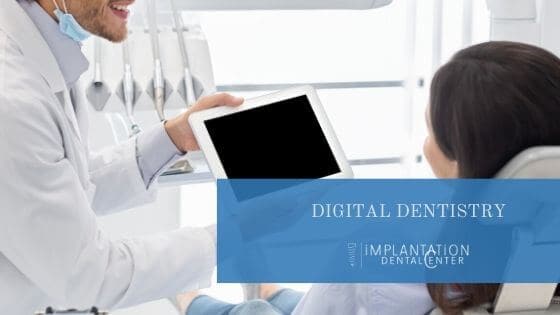Technology is being developed at lightning speeds across all parts of medicine. The development of newer, faster machines and techniques aided by computers and robots allows doctors to treat more patients, faster, and with better results.
These advances even stretch into the dental industry. Robust development of new X-ray machines, virtual technologies, and more are rapidly evolving. As the dental industry evolves, technology becomes more and more advanced. New technology leads to new techniques and new materials, all of which aim to create better and more accurate processes for dental care and oral surgeries.
Humans are prone to error. Even the best surgeon can have a hand that shakes occasionally or miscalculate the positioning of an implant. These can lead to minor, or sometimes even serious, complications that affect the patient’s outcome. Plus, technology can be used to streamline processes and make things faster.
With these advances comes skepticism. The rapid evolution has caused digital dentistry to take off. As with many other fields, digital technology has taken over the industry. What was done manually in the past, is now being done, or working towards the ability to do, with the help of computers.
This change is exciting for researchers and dental professionals who are eager to try out new digital dentistry technology, but there are certainly patients who are less than comfortable with the idea. Now, work that was once done manually is completed faster with the help of computers and other technology. For people who are used to simpler, direct care these changes are abrasive and disruptive.
So, while there are clearly a lot of advantages to developing new, digital technology and solutions, this skepticism in the industry is only natural. How far can researchers take this technology? Will it hold up in the future? Can machines and artificial intelligence really compete with and surpass the capabilities of people?
As a result, there’s an ongoing debate discussing whether digital dentistry is disruptive or destructive to the industry. So far, innovations have spurred new and exciting developments. There are more effective ways to capture X-rays of the teeth, faster methods for collecting molds, and more effective dental surgeries and procedures.
Everything is moving faster and becoming more efficient. In time, the comfort level of patients, dentists, and other professionals in the industry will grow. It may take a little time before digital dentistry fully proves its value, but the potential is strong. Faster recovery times, more efficient appointments, safer and customizable materials, dental devices, and so many more advantages will continue to develop.
Overall, the industry is moving in an exciting new direction. But as with anything else, it’s important that you feel comfortable with your dentist and prosthodontist. Remember you can always ask questions about procedures, materials, techniques, and any other aspects of your treatment. It’s important to assess your comfort level with your dental professional, the environment, and your treatment plan.
If you’re interested in learning more about digital dentistry and how it impacts our practice, give us a call today.



